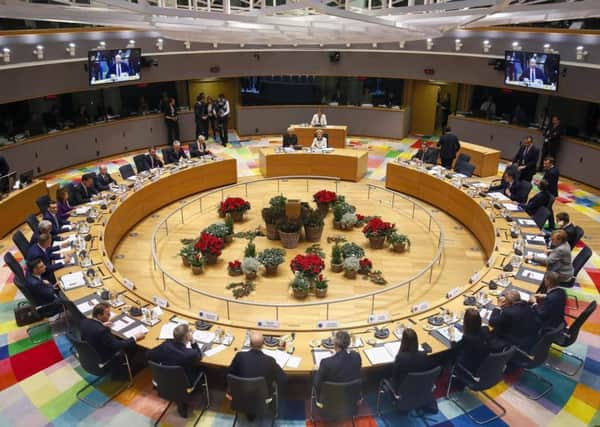Independent Scotland would be clear candidate to join EU, but it could take years – Anthony Salamone


After years of Brexit indecision, the new Conservative majority at Westminster renders certain the UK’s withdrawal from the EU. At the end of January, the UK will be out. While a transition period will immediately follow, exit day will see British nationals lose their EU citizenship, UK MEPs withdrawn and British flags in Brussels taken down.
Scotland has a distinct story on Brexit. Besides reaffirming EU membership in the 2016 referendum, it decisively rejected Brexit at every subsequent democratic event. In landslide fashion, 90 per cent of Scotland’s new Westminster MPs support staying in the EU.
Advertisement
Hide AdAdvertisement
Hide AdHeading into the post-Brexit future, a healthy dose of realism will be required on how the EU will approach Scotland. Since the Brexit vote, the Scottish Government’s strategy towards the EU 27 has been one of differentiation. It has underlined how Scotland supports EU membership and the free movement of people, in contrast to the UK overall. Those points have generated favourable sentiment for Scotland in Brussels and EU capital, but good feelings only go so far.
The reality of Brexit is that Scotland will become a peripheral actor in Brussels. When the UK moves from member state to ‘third country’, Scotland’s access and relevance will significantly reduce. While the Scottish Government and wider society can sustain EU relationships through the links they have already forged, the challenges will nevertheless be substantial.
EU will remain silent
Whatever influence Scotland is able to maintain in the EU will come from two sources. One is practical cooperation on areas of mutual European interest, like renewable energy, climate change and artificial intelligence.
The other is Scottish participation in the big debates on the future of Europe and our collective place in the world. Success will necessitate a widening of horizons.
On Scotland’s independence debate, the EU will remain largely silent after Brexit. Occasional favourable pronouncements from particular MEPs and national parliamentarians on an independent Scotland joining the EU will undoubtedly continue. But the European Commission and the EU member states – the principal decides – will have little to say.
Even once the UK has left, EU decision-makers will continue to see the question of Scottish independence as an internal British matter, from which they will want to remain distant.
Despite the outward disinterest, private EU opinions on an independent Scotland have notably shifted since the Brexit referendum. For many in Brussels, the logic of pro-European Scotland joining the EU after the departure of Brexit Britain is compelling. It would serve as a powerful antidote to the narrative of failure and loss associated with the UK’s abandoning of the EU. But those views will remain utterly unspoken while the independence debate rages.
Clear candidate for membership
In a future independence referendum, EU officials will certainly not repeat their ill-judged and inaccurate statements on the apparent difficulties of Scottish EU membership. Such interventions around the 2014 referendum were misguided attempts to be supportive of the UK Government, and not reflective of the reality, then or now.
Advertisement
Hide AdAdvertisement
Hide AdWhether or not a new referendum lies in Scotland’s near future, over-optimism on the EU should be checked at the door. Scotland as part of the UK will shortly become an external partner of the EU, with all the associated challenges for engaging and influencing.
Were it to become independent, Scotland would be a clear candidate for EU membership, but accession would take around four to five years after formal independence.
Scotland must avoid the kind of exceptionalist illusions which fostered the UK’s disconnect from the EU and led to Brexit. Its pro-EU sentiment is a valuable resource which should be channelled into practical form. After Brexit, Scotland will have to approach its EU relations with pragmatic strategy.
Anthony Salamone is managing director of political consultancy European Merchants
